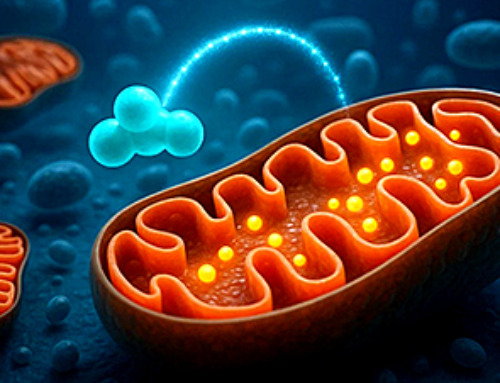Women worldwide could see better treatment with new AI technology, which enables better detection of damaged cells and more precisely predicts the risk of getting breast cancer, shows new research from the University of Copenhagen.
Breast cancer is one of the most common types of cancer. In 2022, the disease caused 670,000 deaths worldwide. Now, a new study from the University of Copenhagen shows that AI can help women with improved treatment by scanning for irregular-looking cells to give better risk assessment.
The study, published in The Lancet Digital Health, found that the AI technology was far better at predicting the risk of cancer than current clinical benchmarks for breast cancer risk assessment.
The researchers used deep learning AI technology developed at the University of Copenhagen to analyze mammary tissue biopsies from donors to look for signs of damaged cells, an indicator of cancer risk.
“The algorithm is a great leap forward in our ability to identify these cells. Millions of biopsies are taken every year, and this technology can help us better identify risks and give women better treatment,” says Associate Professor Morten Scheibye-Knudsen from the Department of Cellular and Molecular Medicine and senior author of the study.
Predicts cases of five times the risk of breast cancer
A core aspect of assessing cancer risk is looking for dying cells, caused by so-called cellular senescence. Senescent cells are still metabolically active but have stopped dividing. Previous research has shown that this senescent state can help suppress cancer development. However, senescent cells can also cause inflammation that can lead to tumor development.
By using deep learning AI to search for senescent cells in tissue biopsies, the researchers were able to predict the risk of breast cancer better than the Gail model, the current gold standard for assessing breast cancer risk.
“We also found that if we combine two of our own models or one of our models with the Gail score, we get results that are far better at predicting the risk of getting cancer. One model combination gave us an odds ratio of 4.70 and that is huge. It is significant if we can look at cells from an otherwise healthy biopsy sample and predict that the donor has almost five times the risk of developing cancer several years later,” says Indra Heckenbach, first author of the study.
Algorithm trained on ‘zombie cells’ can give better treatment
The researchers trained the AI technology on cells developed in cell culture that were intentionally damaged to make them senescent. The researchers then used the AI on the donor biopsies to detect senescent cells.
“We sometimes refer to them as zombie cells because they have lost some of their function, but they are not quite dead. They are associated with cancer development, so we developed and trained the algorithm to predict cell senescence. Specifically, our algorithm looks at how the cell nuclei are shaped, because the nuclei become more irregular when the cells are senescent,” explains Heckenbach.
It will still be several years until the technology is available for use at the clinic, but then it can be applied worldwide, as it only requires standard tissue sample images to do the analysis. Then, women around the globe can potentially use this new insight to get better treatment.
Scheibye-Knudsen adds, “We will be able use this information to stratify patients by risk and improve treatment and screening protocols. Doctors can keep a closer eye on high-risk individuals, they can undergo more frequent mammograms and biopsies, and we can potentially catch cancer earlier. At the same time, we can reduce the burden for low-risk individuals, e.g. by taking biopsies less frequently.”
More information: Indra Heckenbach et al, Deep learning assessment of senescence-associated nuclear morphologies in mammary tissue from healthy female donors to predict future risk of breast cancer: a retrospective cohort study, The Lancet Digital Health (2024). www.thelancet.com/journals/lan … (24)00150-X/fulltext
Image Credit:
News
Breakthrough Drug Restores Vision: Researchers Successfully Reverse Retinal Damage
Blocking the PROX1 protein allowed KAIST researchers to regenerate damaged retinas and restore vision in mice. Vision is one of the most important human senses, yet more than 300 million people around the world are at [...]
Differentiating cancerous and healthy cells through motion analysis
Researchers from Tokyo Metropolitan University have found that the motion of unlabeled cells can be used to tell whether they are cancerous or healthy. They observed malignant fibrosarcoma cells and [...]
This Tiny Cellular Gate Could Be the Key to Curing Cancer – And Regrowing Hair
After more than five decades of mystery, scientists have finally unveiled the detailed structure and function of a long-theorized molecular machine in our mitochondria — the mitochondrial pyruvate carrier. This microscopic gatekeeper controls how [...]
Unlocking Vision’s Secrets: Researchers Reveal 3D Structure of Key Eye Protein
Researchers have uncovered the 3D structure of RBP3, a key protein in vision, revealing how it transports retinoids and fatty acids and how its dysfunction may lead to retinal diseases. Proteins play a critical [...]
5 Key Facts About Nanoplastics and How They Affect the Human Body
Nanoplastics are typically defined as plastic particles smaller than 1000 nanometers. These particles are increasingly being detected in human tissues: they can bypass biological barriers, accumulate in organs, and may influence health in ways [...]
Measles Is Back: Doctors Warn of Dangerous Surge Across the U.S.
Parents are encouraged to contact their pediatrician if their child has been exposed to measles or is showing symptoms. Pediatric infectious disease experts are emphasizing the critical importance of measles vaccination, as the highly [...]
AI at the Speed of Light: How Silicon Photonics Are Reinventing Hardware
A cutting-edge AI acceleration platform powered by light rather than electricity could revolutionize how AI is trained and deployed. Using photonic integrated circuits made from advanced III-V semiconductors, researchers have developed a system that vastly [...]
A Grain of Brain, 523 Million Synapses, Most Complicated Neuroscience Experiment Ever Attempted
A team of over 150 scientists has achieved what once seemed impossible: a complete wiring and activity map of a tiny section of a mammalian brain. This feat, part of the MICrONS Project, rivals [...]
The Secret “Radar” Bacteria Use To Outsmart Their Enemies
A chemical radar allows bacteria to sense and eliminate predators. Investigating how microorganisms communicate deepens our understanding of the complex ecological interactions that shape our environment is an area of key focus for the [...]
Psychologists explore ethical issues associated with human-AI relationships
It's becoming increasingly commonplace for people to develop intimate, long-term relationships with artificial intelligence (AI) technologies. At their extreme, people have "married" their AI companions in non-legally binding ceremonies, and at least two people [...]
When You Lose Weight, Where Does It Actually Go?
Most health professionals lack a clear understanding of how body fat is lost, often subscribing to misconceptions like fat converting to energy or muscle. The truth is, fat is actually broken down into carbon [...]
How Everyday Plastics Quietly Turn Into DNA-Damaging Nanoparticles
The same unique structure that makes plastic so versatile also makes it susceptible to breaking down into harmful micro- and nanoscale particles. The world is saturated with trillions of microscopic and nanoscopic plastic particles, some smaller [...]
AI Outperforms Physicians in Real-World Urgent Care Decisions, Study Finds
The study, conducted at the virtual urgent care clinic Cedars-Sinai Connect in LA, compared recommendations given in about 500 visits of adult patients with relatively common symptoms – respiratory, urinary, eye, vaginal and dental. [...]
Challenging the Big Bang: A Multi-Singularity Origin for the Universe
In a study published in the journal Classical and Quantum Gravity, Dr. Richard Lieu, a physics professor at The University of Alabama in Huntsville (UAH), which is a part of The University of Alabama System, suggests that [...]
New drug restores vision by regenerating retinal nerves
Vision is one of the most crucial human senses, yet over 300 million people worldwide are at risk of vision loss due to various retinal diseases. While recent advancements in retinal disease treatments have [...]
Shingles vaccine cuts dementia risk by 20%, new study shows
A shingles shot may do more than prevent rash — it could help shield the aging brain from dementia, according to a landmark study using real-world data from the UK. A routine vaccine could [...]





















